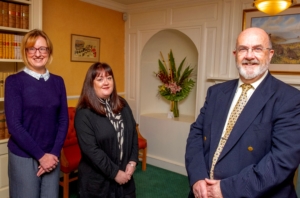In world flooded with advertisements for affordable DIY Wills and packs, the allure of saving money can be tempting.

Rebecca Armstrong
However, the real question is, do these DIY solutions truly save you money?
Rebecca Armstrong, Senior Associate Solicitor in our Will and Inheritance Dispute Team, reports on the pitfalls of DIY Wills.
The Cheap Appeal
The market is awash with ‘premium’ DIY Will packs priced as low as £7.99. Testators simply fill in the boxes and believe they’ve secured their assets and ensured their wishes will be carried out when they are gone. Compared to the costs of hiring a solicitor, the affordability seems irresistible.
In today’s digital age, after a quick internet search, some may even venture to draft their Wills from scratch, assuming it’s a straightforward process. However, the reality is far more complex.
The Risky Reality
The apparent ease and cost-effectiveness of DIY Wills mask a significant risk—the absence of professional involvement. What may seem like a straightforward matter in a DIY template could be insufficient to fulfil your wishes. Further, without guidance from an experienced solicitor, one might unknowingly violate the stringent requirements for a valid Will, potentially rendering it invalid or leading to prolonged and expensive litigation.
The risks involved:
- Legal Complexity: What may seem like a straightforward matter in a DIY Will template could be insufficient or even invalid if it falls fouls of the strict legal requirements for valid wills.
- Ambiguity and Errors: DIY Wills often lack the specificity and legal language required to accurately convey your intentions. Ambiguities or errors in the document can lead to confusion and disputes among your beneficiaries.
- Unforeseen Circumstances: DIY Wills typically don’t account for various life events or changes in circumstances that may affect the distribution of your assets. Without regular review and updates, your Will may become outdated and ineffective.
Professional Safeguards
When a solicitor is involved, they meticulously document all discussions with the testator. These records serve as crucial evidence in case of future Will disputes. Professionally drafted Wills tend to be more resilient to challenges, providing a safeguard against potential legal battles.
Further, legal professionals can assess your unique personal circumstances, anticipate potential issues and provide tailored solutions to ensure efficient distribution and protection of your assets.
The True Cost
Considering the substantial legal costs which can be associated with Wills and Inheritance disputes—often reaching tens or even hundreds of thousands—opting for a DIY Will becomes a false economy. The initial savings pale in comparison to the potential costs and headaches that may arise later.
The Wise Choice
While DIY solutions may seem appealing, the risks associated with creating a Will without professional guidance far outweigh any perceived benefits. For those contemplating their first Will or updating an existing one, we strongly recommend seeking legal advice from a qualified and experienced legal professional. This ensures that your wishes are accurately documented, legally sound and effectively implemented.
If you would like more information on Will Disputes please contact Rebecca Armstrong, Alan Douglas, Steve Bell, Laura Murphy or Michelle Forster.








